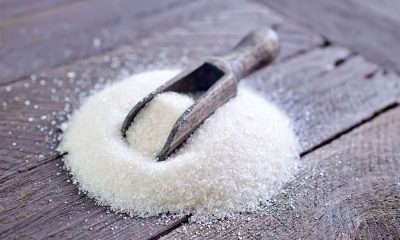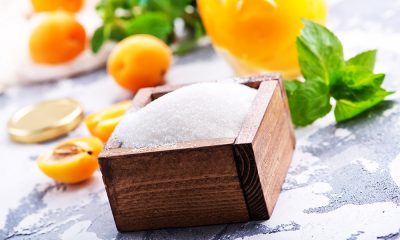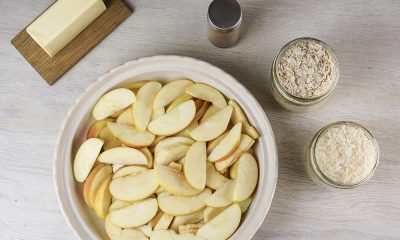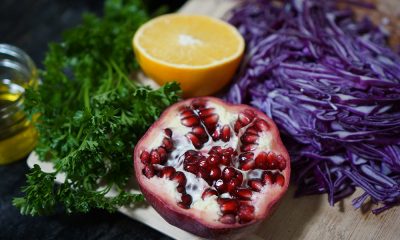Wellness
5 Myths About Xylitol
Is xylitol really as sweet as sugar?
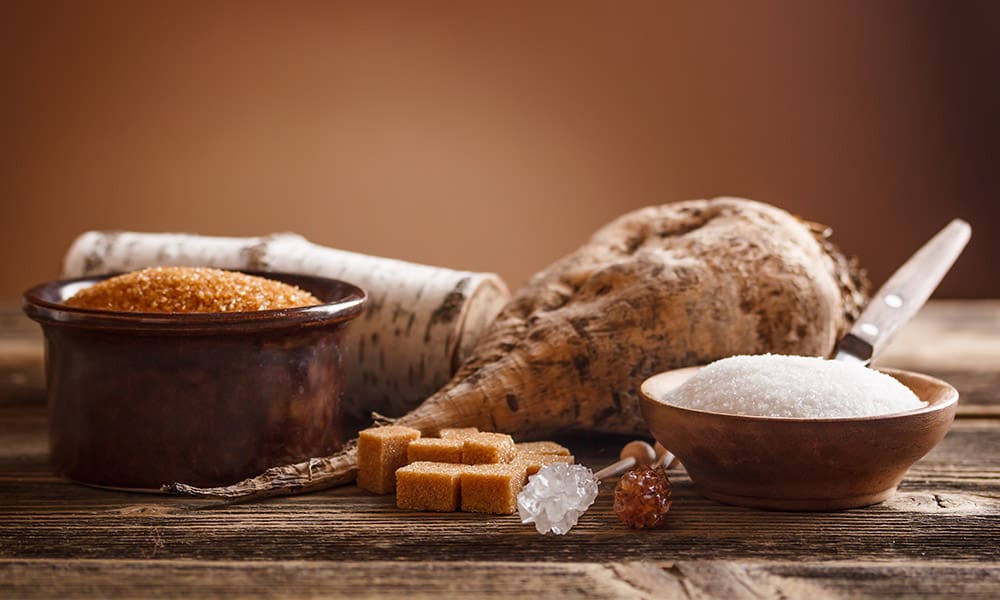
1. Xylitol is Less Sweet Than Sugar
This myth stems from the fact that most sugar alcohols, also called polyols, are less sweet than sugar. Xyltiol is a sugar alcohol, just like erythritol, sorbitol, and maltitol. Xylitol actually has the same or even more sweetness than sugar, depending on the study or person you ask. We’ll get more into the details of that in myth #2.
2. Xylitol is as Sweet as Sugar
This is actually a half myth.
The main study that is used for this “fact” is based on the sweetness of xylitol fully dissolved in water. Xylitol is up to 1.5 times sweeter than sugar when not dissolved in water.
I usually recommend using about 75% of the amount of sugar specified in a recipe to get the same sweetness as with sugar. This usually works out quite well for the consistency of recipes as well since xylitol absorbs more water than sugar. The exception on the consistency is for desserts that depend on sugar caramelizing, since xylitol doesn’t caramelize, so then you’ll end up with a different consistency than had you used sugar.
3. Xylitol Is Dangerous for Dogs
This is true, for dogs and ferrets, but still a half myth.
Dogs eat plums. It’s not good for them either, but the big danger there is them choking on the pit. Of the sugar in a plum, 10% of it is xylitol. So xylitol as an ingredient isn’t the actual problem.
The problem for dogs is pure xylitol without any sugar. Xylitol alone actually causes an insulin spike in dogs, which can put them into a diabetic coma and very tragically, in some cases, kill the dog.
4. Xylitol is an Artificial Sweetener.
That xylitol is an artificial sweetener is a total myth – just tell that to the plum who naturally contains 10% xylitol or your own body that uses xylitol as a side product of the Krebs Cycle. On the other hand, the xylitol you buy in the store is made in a factory, bulk produced like most of the supplement and vitamins we’re taking, but we’ll talk more about that in myth #5.
5. Xylitol Contains Nickel
We need to talk about this…
In the large-scale world of bulk ingredients, xylitol is currently only being made in two ways. In the US and Europe from xylose in birch and beech trees, and in China from xylose in corn husks. Both of these processes use nickel together with hydrogen to convert the “wood sugar” xylose into xylitol. The xylitol is then purified to remove the nickel, but traces could remain in the xylitol.
I always choose birch xylitol produced in Europe or the US, both because of the smaller environmental footprint, but also because the levels of nickel are more tightly controlled. The maximum nickel allowed to be in the finished xylitol is 1mg/kg, which is 1/4th of the nickel in cashews or 1/27th the nickel in chocolate.
I would prefer a different way to mass produce xylitol and would be very willing to promote any company that is trying to do that, but I believe the health positives are still stacked in xylitol’s favor.
The Bottom Line
One of the biggest threats against our health is the over consumption of sugar.
I agree with those that say we should not eat any sweeteners. No sugar, honey, syrups, stevia, erythritol, xylitol. That’s best.
I also realize that’s not an option for many people, and in that case, xylitol is the best tasting sugar alternative, that also protects your teeth, and helps stabilize your blood sugar.

Wellness
Beneath the Layers

In the beginning of the journey of work clients and I venture on, the surface issues and discussions are initially “just surface.”
In fitness, when there’s a movement a client cannot perform after much practice and polishing, the first thought is that they just can’t do it. Soon enough, we discover their central nervous system has protected their body from moving in that specific manner, because there is a limiting belief and limiting decision their central nervous system and their unconscious mind have a greed upon. And it has defined itself as “safety.”
When clients want to lose weight, we later on discover the emotional un-resolve rooted in eating patterns inhibiting them from their success of doing so. Sometimes, more often than others, there’s systematic problems inhibiting digestion promoting bloating, infections wreaking havoc, and the list goes on.
Mental blocks become obvious as we begin to peel away the layers. We eventually become acquainted that the behavioral “issues” desired to be changed, are very obvious physical symptoms or manifestations breeding beneath deeper layers.
There’s a lot of “stuff” we stuff. That “stuff” will introduce itself to you and the world around you, eventually. Self preservation can feel “safe” and comfortable. But it is unsustainable. Eventually the totality of us, will beg to be resolved. Lean in listen and learn. Eventually you will heal.
“We will project that which is unconscious in the most obvious of ways in order to become consciously aware which is most unconscious so we can gain the learning necessary to get results.”- Nathan Rossi

 Wellness6 years ago
Wellness6 years agoHow to Talk to Your Kids About Sugar

 Wellness5 years ago
Wellness5 years agoBeneath the Layers

 Wellness7 years ago
Wellness7 years agoThe Sugar Story Children’s Book – Teaching Kids About Sugar

 Purpose5 years ago
Purpose5 years agoNever Let Technology Keep You from Your Dream!

 Lifestyle6 years ago
Lifestyle6 years agoOrganic, Sustainable, Non-Toxic Vacation Homes!

 Lifestyle6 years ago
Lifestyle6 years ago5 Ways to Make Your Next Hotel Stay Healthier

 Unrecipe7 years ago
Unrecipe7 years agoSuper Simple Apple Cake

 Unrecipe7 years ago
Unrecipe7 years agoRed Cabbage Salad


